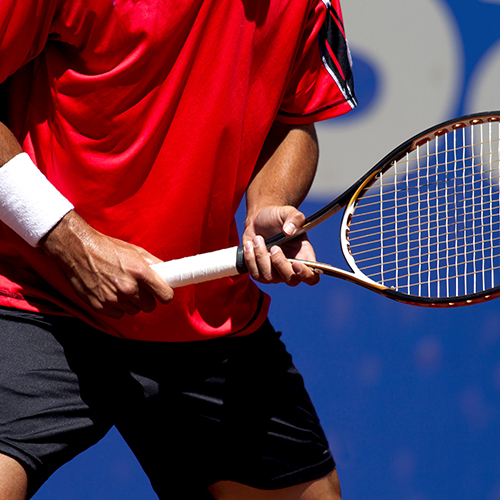19 January 2021
 Australian-based tennis players may have a once-in-a-lifetime court advantage at the 2021 Australian Open as many of their international counterparts endure lockdown restrictions in Melbourne hotels.
Australian-based tennis players may have a once-in-a-lifetime court advantage at the 2021 Australian Open as many of their international counterparts endure lockdown restrictions in Melbourne hotels.
According to exercise scientist, University of South Australia’s Professor Kevin Norton, international tennis players will be struggling to maintain their elite physiological and psychological fitness as the 14-day lockdown prevents them from maintaining their regular training schedule.
“One of the key tasks of conditioning staff is to periodise players’ training and recovery sessions across the competition season. This is not a simple science and involves a complex balance of overload time and appropriate recovery,” Professor Norton says.
“Severe changes to training schedules and environments, will significantly impact on players as they struggle to prevent physiological and biochemical decay.
“Training induces increases in blood volume and circulatory function to help maintain heart efficiency, regulate muscle blood flow and oxygen delivery, as well as help control body temperature. It also provides a reservoir of fluid for potential sweat, which is essential for body cooling during elite competition.
“After a few days of inactivity, most of these cardiovascular adaptations will be lost, exacerbated by the long-haul flights to Australia.
“Confinement may also cause a deterioration in players’ decision-making speed and accuracy, both of which are essential for the fast-paced nature of elite tennis.
“As fitness changes, so too do reaction times, even in short periods; players who are able to more quickly adapt and maintain their level of response post quarantine are likely to stand out.
“Perhaps most critical is the fact that players are now in controlled, air-conditioned rooms, 24 hours a day. Exposure to hot environments is essential for players to maintain enhanced capacity to regulate their bodies under very hot court conditions.
“Many players may now be underprepared to adjust to the extreme temperatures commonly seen in Melbourne at the Australian Open, and this could pose very serious health risks.”
Currently, 72 players are confined to their hotel rooms, unable to engage in their regular training.
Prof Norton says that resistance training and the ability to adapt will be critical for players in lockdown.
“As much as possible, players should be undertaking resistance training for all body parts in their rooms,” Prof Norton says.
“Not only will this help maintain muscle function, but it will lessen the micromuscular damage, inflammation and soreness that is inevitable upon resuming heavy training and competition.
“COVID-19 has presented unprecedented conditions for all of us; how players perform is yet to be seen. But, for those not in quarantine, this scenario could be a once-in-a-lifetime match point.”
………………………………………………………………………………………………………………………
Media: Annabel Mansfield T: +61 8 8302 0351 M: +61 417 717 504 E: Annabel.Mansfield@unisa.edu.au
Researcher: Prof Kevin Norton T: +61 8 8302 1503 M: +61 417 817 026 E: Kevin.Norton@unisa.edu.au




